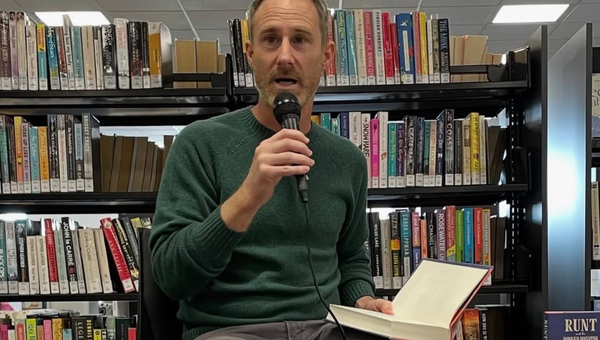Inflation remains a persistent problem in Australia and globally.
The price of petrol, gas, electricity and food continues to climb in many countries.
And while wage growth in Australia remains sluggish, it's higher in Britain and the United States.
For example, in Britain the annual pay growth for "regular pay" was 5.2 per cent from May to July — well above Australia's latest wage price index reading of 3.1 per cent for the September quarter.
"Wage and price inflation in the US and Europe is running considerably higher today than at any time since the last great inflation [period] four decades ago, thanks to robust aggregate demand, very tight labour markets, and supply-side shocks and constraints," Deutsche Bank research notes.
Reducing inflation is a priority for central banks — but at what cost?
Central banks around the world, including Australia's Reserve Bank, are committed to reducing inflation to more sustainable levels.
"We read the Federal Reserve and ECB (European Central Bank) as being absolutely committed to bringing inflation back to desired levels within the next several years," Deutsche Bank says.
This, the international investment bank warns, will come at a significant global economic cost.
"Although the costs in doing so may be lower than in the past for reasons we lay out, it will not be possible to do so without at least moderate economic downturns in the US and Europe, and significant increases in unemployment," the investment bank explains.
"The economic downturns along with the aggressive monetary tightening and geopolitical and commodity shocks that induce them will be temporarily painful in financial and emerging markets.
"We see major stock markets plunging 25 per cent from levels somewhat above today's when the US recession hits, but then recovering fully by year-end 2023, assuming the recession lasts only several quarters."
While there is an accepted term for a stock market peak to trough fall of 10 per cent or more, which is a "correction", there is no term for a fall of more than 20 per cent.
It's widely understood, however, as a "crash".
Fear lingers in financial markets
Independent market analyst and trader Henry Jennings says it's clear there's a degree of fear lingering in financial markets, despite a recent lift in global share prices.
"It's like we're standing on the tracks and looking at the lights of an oncoming train," he says.
Stock markets around the world have benefited from what investors call a "bear market rally."
It's when stocks climb higher for a brief period within a longer-term downward trend.
The Australian benchmark share index (S&P/ASX200), for example, is now down less than 5 per cent from its all-time high set in August last year — it was down 15 per cent at one point.
"No-one can predict the future, but they are looking at P/E (price-to-earnings) ratios," Mr Jennings says.
The price-to-earnings ratio is used by analysts to determine if a listed company's share price is trading above what the firm's earnings would suggest is a fair value.
Price-to-earnings ratios provide a guide for analysts to determine if a company's share price is overvalued.
It's literally the stock price in relation to the earnings of a company.
A stock market can also have a P/E ratio.
While P/E ratios broadly don't look excessively high at this point, Deutsche Bank is of the view that company earnings, or profits, will fall substantially next year, making stock prices look too high.
Author and professional investor Danielle Ecuyer says another broad share market sell-off is possible, but whether it happens depends on how aggressively central banks continue raising interest rates.
"Stock markets have largely fallen in 2022 from a contraction in valuations in response to rising interest rates," she says.
"The next phase of the potential sell-off in equities will be driven by a fall in earnings as economic activity slows, in a lagged response to rate increases."
That is, the impact of higher mortgage costs and rising unemployment.
"The more earnings fall as the economy splutters, the more stock prices will decline," Ms Ecuyer explains.
China is key to how the global economy performs
"The swing factor in all of this is going to be China," Mr Jennings says.
China's economy is the second-largest in the world, after the United States.
"The global economy is hostage to what China does with COVID," he explains.
"We should do relatively better because of Australia's economic ties to China."
As for Deutsche Bank's forecast of a global stock market crash, Mr Jennings says you can debate any sort of financial markets forecast.
"It's always nice to put a number on the market," he says.
"We are just best-guessing at the moment.
"We've seen this year that, well and truly, anything can happen."







